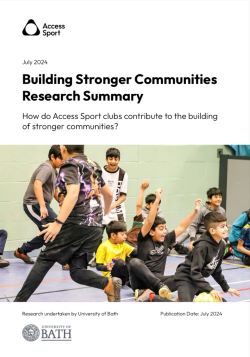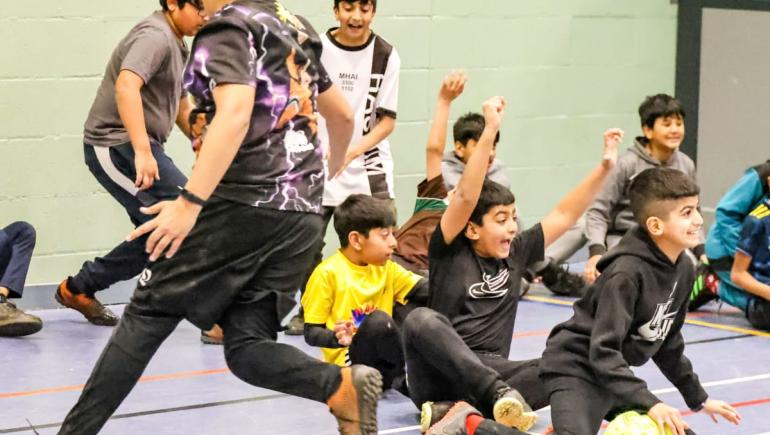New research has been published on the critical role that grassroots sport clubs can play in strengthening communities and giving young people a sense of belonging.
Carried out by the University of Bath and commissioned by Access Sport, ‘Building Stronger Communities’ provides important evidence on the transformational impact of community sport.
Following publication of the research, Access Sport CEO Helen Rowbotham is calling on the sport sector to reconsider the ability of community-based clubs to address societal inequalities.
PRIORITISED
She said: “For too long a sense of belonging and community engagement have been undervalued benefits in sport. However, as set out in our Manifesto for Change, these outcomes underpin the wider transformational benefits of sport and need to be prioritised. This research showcases something we’ve always been aware of here at Access Sport – inclusive community sport is the ultimate tool in tackling societal inequalities and strengthening underserved communities.”
Key findings include:
- Community sport challenges the traditional idea that communities are solely defined by place or locality.
- Sense of belonging and community underpin the wider transformational benefits of sport.
- Clubs provide essential opportunities for young people to have positive and safe social interactions.
- Clubs have a positive impact on parents or guardians as they enable them to socially interact with one another.
- Sense of belonging extends beyond the boundaries of a community club.
 The research emphasises that by prioritising community engagement and a sense of belonging as key benefits, clubs can maximise other wider social outcomes, including improved health, wellbeing and life prospects.
The research emphasises that by prioritising community engagement and a sense of belonging as key benefits, clubs can maximise other wider social outcomes, including improved health, wellbeing and life prospects.
Academics from Bath University interviewed children, staff, and parents or guardians from 12 community sports clubs in Bristol, London, and Manchester. An additional survey with 400 respondents from across the UK was also completed.
EMBEDDED
To support sport and exercise providers, Access Sport has also developed a playbook to accompany the research. This playbook informs clubs' practices and ensures a sense of belonging and community engagement are embedded in their approach as key benefits.
Lead researcher Dr Haydn Morgan commented: “It is well documented that children are experiencing a wide range of issues concerning social isolation, which is having a direct impact on their mental health. This was exacerbated by the Covid-19 pandemic, so it’s more important than ever for all young people to build connections with their local communities.
“Having access to community sports clubs, that can provide essential opportunities for young people to have positive and safe social interactions; address feelings of social isolation; and foster a sense of belonging and community, is something that our research highlights as being critical in many young people’s lives”.









